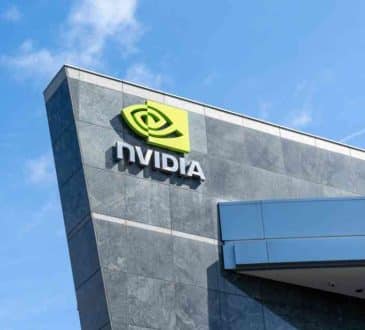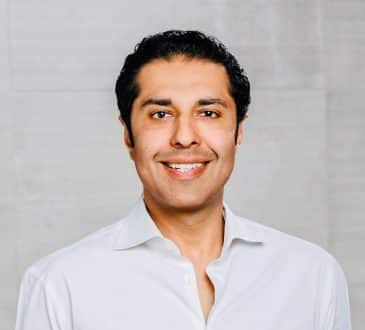What Has Changed? Almost Everything.

Recently, after giving a keynote at a major conference about The New Political Capitalism I was asked a question: “But business has always had a political dimension. So, what has changed?”
Good question. The answer – almost everything has changed.
What a business is for?
The first thing that has changed is that the Milton Friedman doctrine that a company has no social responsibility to the public or society; that its only responsibility is to make as much money as possible for shareholders, has finally been recognized as the abject nonsense that it always was.
The Friedman mantra was simple, appealing, and wrong. Yet a whole generation of business leaders and business school graduates have been brought up with that as their guiding light. Now we are all faced with its inevitable collapse and struggling to find a manageable answer to the question of what business is for. It will take time, and many are doing great work to move the discussion forward. Some going overboard and expecting business to solve all the world’s problems, castigating them when they don’t – because they can’t and that’s not their role anyway.
Yet, business clearly has an important political role in that what businesses do and how they do it has a direct impact on the sort of society in which we live. And that is the fundamental question of politics.
While this all plays out, boards and executive teams will struggle with the question of what they are governing for. A question that should clearly come ahead of all the talk about how to do ‘better governance.’
Power Dynamics
The dynamics of power have been transformed.
There was a time when business – and particularly big business – had an outsized and largely unmatched share of political power. Today, their share of voice is ever diminishing as a consequence of two major drivers.
First, the rise of competent, capable, widespread, and well-funded civil society organisations that now wield significant political power. These organisations successfully influence both public opinion and public policy. Activists have learned to terrorize corporations and hold their feet to the fire – sometimes with successful lawsuits. And they are more trusted by the public than are the corporations. Politicians will listen. Some senior executives risk becoming either overly submissive or paralyzed. Others jump eagerly on the latest cultural fashion only to find that that path, too, is full of snares and traps.
Second, the rise of social media has given everyone the opportunity to have an effective voice. Gatekeepers of information and opinion who could previously be co-opted by large commercial players have been gutted. The corporate world no longer controls large parts of the narrative.
Coupled with a shift in trust, this is rendering corporate communications ever less effective. As I said to a leading business journalist recently, I could write five glowing articles about a corporation and one negative one and most people will only believe that last one. He agreed. It reflected his own reaction to the endless corporate press releases cluttering his inbox.
Transparency
Partly as a consequence of the above, we now live in an age of almost total transparency.
Decades ago, a boss of mine told me that anything I write should be written with an understanding that it could appear, somehow, on the front page of the New York Times. That warning is much truer today than it was then.
Whistleblowing, hacking, leaking troves of ‘confidential’ documents, etc., etc. These are no longer exceptions. They are the rule. Nothing is hidden or can be assumed to be private any longer. What corporations do and how they do it is now exposed to the world in all its naked glory.
No more quiet political deals in smoke-filled rooms. No more ‘we can afford to do this because nobody will find out.’
Political Economy
Of course, the whole ecosystem of our political economy has also changed dramatically.
Geo-political fragmentation, a rising China, a revanchist Russia, relative erosion of Western power. The environment in which corporations operate is unrecognizable from that which prevailed in the dying days of the last century.
The world has become a perilous place. If America’s place as the dominant global power continues to be eroded, we can expect increased turmoil. Just like a wolf pack falls apart when there is no alpha male capable of maintaining order.
All this impacts business – what societies will accept in terms of ‘globalisation’, the future of the multinational business model, cross-border finance flows, supply chains, everything.
Locally, too, the political music has changed. Increasing polarization, culture wars, a seeming inability to get stuff done as every faction pulls in a different direction, each utterly convinced of their own righteousness and the utter degeneracy of those with different political views. All this having a notable effect on how one does business.
It sometimes feels that while we all got used to dancing to easy listening music, we’re suddenly expected to deal with heavy metal with its frightening playing pace and, for some, its endlessly discordant notes.
Our understanding of economics is also evolving. Much of the dogma contained in economic textbooks is no longer credible. Old economic tools seem utterly unfit for purpose in the new world. The 2008-9 financial crash brought into sharp focus the fact that our system of financialized capitalism was reaching the end of its road.
And, of course, much as though some continue to close their eyes to it, all of this is happening in the dark shadow of unsustainable environmental degradation that is an integral feature of our extracting and dumping economy. And for which we have not yet found any meaningful alternative.
The end of laissez faire
The Washington Consensus is dead. Replaced by the Cornwall Consensus following the G7 summit in the UK in 2021. There, world leaders prioritised a politics that moves proactively to shape markets to deliver a better functioning political economy, recognising the central role of politics in the construction of functioning markets.
Some business leaders throw their hands up in horror at what they see as unwelcome government interventionism. Except, of course, when such interventionism means that they are handed billions of dollars in taxpayer-funded subsidies. The ‘government should keep out of my way mantra’ is then nowhere to be heard.
Expectations
All of the above and more has changed expectations. What people expect from business today – whether as customers, employees, shareholders, suppliers, governments, other stakeholders – is fundamentally different from what went before. Everyone has different expectations ensuring that business leaders are now consistently pulled in every conceivable direction – normal life for politicians but not, in the past, for business leaders.
Maybe we can even find some support for this in Milton Friedman who, in his famed New York Times article, stated that business should make as much money as possible ‘while conforming to the basic rules of society, both those embedded in law and those embodied in ethical custom.’ Well, ethical custom – our moral intuitions and expectations of what is right – have changed and business has to operate within those evolving customs.
The flipside: many have come to expect much too much from business. Those executives trying to satisfy every one of these expectations will find themselves utterly overwhelmed.
How to deal with this new world? Suggestions welcome as I try to explore that question in subsequent newsletters.
Written by Dr. Joe Zammit-Lucia.
Have you read?
Revealed: Highest-paid college football coaches, 2024.
Revealed: These are the Deadliest Cars you can drive in the US, 2024.
Revealed: Words that weren’t in use before the 1990s but are now commonly used.
Ranked: Countries with the lowest petrol prices, 2024.
Revealed: The World’s Safest Airlines To Fly In 2024.
Add CEOWORLD magazine to your Google News feed.
Follow CEOWORLD magazine headlines on: Google News, LinkedIn, Twitter, and Facebook.
This report/news/ranking/statistics has been prepared only for general guidance on matters of interest and does not constitute professional advice. You should not act upon the information contained in this publication without obtaining specific professional advice. No representation or warranty (express or implied) is given as to the accuracy or completeness of the information contained in this publication, and, to the extent permitted by law, CEOWORLD magazine does not accept or assume any liability, responsibility or duty of care for any consequences of you or anyone else acting, or refraining to act, in reliance on the information contained in this publication or for any decision based on it.
Copyright 2024 The CEOWORLD magazine. All rights reserved. This material (and any extract from it) must not be copied, redistributed or placed on any website, without CEOWORLD magazine' prior written consent. For media queries, please contact: info@ceoworld.biz
SUBSCRIBE NEWSLETTER








